In today’s competitive business world, choosing the right equipment is very important. Success starts with the right equipment.
Capital equipment, high-value assets like machinery and tools, is the backbone of efficiency, output, and long-term growth. But owning it isn’t enough. Smart planning, proper maintenance, and strategic investment turn equipment into a true growth engine.
In particular, it is essential to understand the distinction between capital and non-capital equipment, as this will enable you to plan your business budget, costs, and investments accurately.
In this content, you will learn about the various aspects of capital equipment, sales, marketing, and supply, which will take your business further. With the right knowledge and skills, it is possible to ensure the profitability and sustainable development of the business through the proper use and maintenance of equipment.
What is Capital Equipment?
Capital equipment is large-scale equipment used in a business that is used for a long time. It is usually used in production or to provide services and is considered the capital of your business.
For example, factory machines, construction cranes, forklifts, and medical equipment are included in capital equipment.
This type of equipment differs from ordinary consumables because it is purchased once and used in the business for many years, depreciating over time.
In particular, investing in capital equipment is very important for your business. It increases productivity, speeds up work, and is profitable in the long run. Therefore, the proper use and maintenance of capital equipment is essential in any business plan.
Capital Equipment Definition: Large-scale machinery and equipment used in a business, which is mainly used for a long time, and its value decreases over time.
Without such equipment, it becomes very difficult for any large business to produce or provide services.

What is Non-Capital Equipment?
Non-capital equipment is small equipment and tools that are used in the day-to-day operations of your business, but are not considered long-term assets.These tools are usually low-cost and are ready for use quickly. For example, office computers, printers, chairs, desks, small tools, or other small appliances.
In particular, the purchase of non-capital equipment is usually accounted for as a one-time expense and is not listed as a fixed asset in financial statements.Understanding the difference between non-capital equipment and capital equipment is very important in business financial planning and accounting.
Because they are accounted for separately and have different effects on determining your business’s expenses and investments.
Difference Between Capital and Non-Capital Equipment
The success of a business largely depends on the use of the right equipment. However, not all equipment is of the same category, and the categories differ according to their useful life, cost, and accounting importance.
Understanding the basic difference between Capital Equipment and Non-Capital Equipment is very important for a company’s proper budget planning, asset management, and costing. Below is the difference between Capital Equipment and Non-Capital Equipment.
| Features | Capital Equipment | Non-Capital Equipment |
| Definition | Large and permanent equipment that is used in a business for a long time. | Small equipment that is used for daily work wears out quickly. |
| Useful life | Usually used for years or decades. | Short-term, fast-changing and actionable. |
| Value | Purchased at a high cost and with a large investment. | Relatively low cost and easily available. |
| Accountancy | Accounted as an asset and depreciated over time. | Considered as a one-time expense, not a fixed asset in the financial statements. |
| Examples | Machinery, construction cranes, vehicles, and large equipment. | Office computers, printers, chairs, desks, small tools, etc. |
| Importance of business | Essential for increasing productivity and business stability. | Necessary for the smooth running of the day-to-day operations of the business. |
What is Capital Equipment Sales
Generally, capital equipment sales refer to the sale of high-value equipment or tools that a business or industry uses over the long term to improve the quality of production, operations, or services.
For example, an X-ray machine in a hospital, a crane in the construction sector, or an automated machine in a manufacturing factory.
This sales process is not as simple as a normal product. A capital equipment sales representative understands the customer’s needs and helps them choose the right equipment.
For this, he must have a clear idea about the technical aspects, performance, and return on investment of the product.
The right capital equipment sale means ensuring the success of not only the seller but also the buyer’s business. Therefore, it is a much more strategic, information-based, and relationship-based sales process.
Capital Equipment Sales Representative Salary
If you think that someone can earn millions just by selling products, then you should look at Capital Equipment Sales Representatives! This profession is not only challenging, but also full of great financial opportunities.
A Capital Equipment Sales Representative usually earns an average of $70,000 to $120,000 per year, depending on experience and company. But that’s not all, many earn $150,000 or more with commissions, incentives, and performance bonuses!
The key to this job is: communication skills, technical knowledge of the product, and the ability to build relationships with clients. Here, you are not just selling products, but helping to make big decisions for the future development of an organisation.
So, for those who want to enter the sales profession and want to do something big, I think this can be the best turning point in their career!

Capital Equipment Marketing
Capital Equipment Marketing is a specialised marketing strategy used to sell long-term and high-value equipment or parts. This equipment is typically used in manufacturing, construction, or healthcare.
Advertising alone is not enough to market such products; it requires in-depth industry knowledge, understanding of the target customer, and strong relationship-building strategies.
Content marketing, industry events, product demos, and technical support play a crucial role in the marketing strategy associated with the B2B sales process.
The key aspects of capital equipment marketing are discussed below:
Targeted Audience Research
The first step in successful marketing is to identify the right customers. Who are they? What challenges do they face? What solutions are they looking for? Finding the answers to these questions is the beginning.
ROI-based Messaging
The buyer wants to know, “How much will I get out of using this equipment?” So it is important to clearly illustrate the cost-benefit comparison in marketing content.
Visual Demonstrations
Capital equipment is usually a complex technology product. Video demos, 3D animations, or live presentations are used to explain how to use and perform.
Technical Content Marketing
Prospective customers are provided with technical information and solutions through blogs, case studies, white papers, and guides. This increases the company’s credibility.
If the strategy is implemented correctly, capital equipment companies can not only increase sales but also build long-term client relationships.
Capital Equipment Supply
Capital equipment supply is not just about supplying equipment; it is about reliability, on-time delivery, and quality service.
In particular, when large industrial companies or hospitals purchase heavy machinery, they look for suppliers who will be there for them throughout the entire process, from installation to maintenance.
A good supplier understands the customer’s needs, recommends products, provides customised solutions, and delivers all the equipment on time. Supply chain management, local regulations, and product tracking are all important.
So I think that if the Capital equipment supply is successful, both the productivity and profits of the entire organization increase.
Who can do capital equipment sales or appraisal work?
A university degree is not required to be successful in this profession. Anyone can enter this profession, whether they’re a student, looking to change careers, or just starting out.
If you have a desire to learn, a dream to improve your life, and a desire to earn a little more, this field could open doors to new possibilities for you.
How Machinery Masterclass Institute Can Help with Capital Equipment?
Machinery Masterclass Institute is your trusted guide to learning all things capital equipment. Whether you are a trader, technician or sales professional, you will get complete training here that will make you proficient in operating, repairing and selling machinery.
Here you will find practical workshops supervised by experts, industry information and modern resources, which are easy to use in real life.
This training will help you select and manage the right machinery, thereby increasing both the productivity and profitability of your business.
In short, Machinery Masterclass Institute equips you with the skills and confidence to successfully operate capital equipment and drive your business forward.
Final Thought
Through the above discussion, I have tried to tell you that capital equipment is a major and important asset of a business, which is essential to increase the quality of production and service.
Without the right equipment, the efficiency of the business decreases, and the profit opportunities also shrink. Understanding the difference between capital and non-capital equipment can provide many benefits in budgeting, accounting and long-term planning of the business.
To build a successful business, proper marketing, skilled sales representatives and a reliable supply system are required.
Machinery Masterclass Institute’s training enhances your skills in all these areas, so that you can master all aspects of capital equipment well.
So, take your business forward permanently through the proper use and care of capital equipment.

